A SEASIDE town has had no reported coronavirus cases in two months – and it’s one of three areas of the south hailed as ‘the places Covid forgot’.
Retirement destination Sidmouth in Devon hasn’t registered on the national database for infections in the past two months – while the Isles of Scilly has had no cases since September.

Read our coronavirus live blog for the latest news & updates…
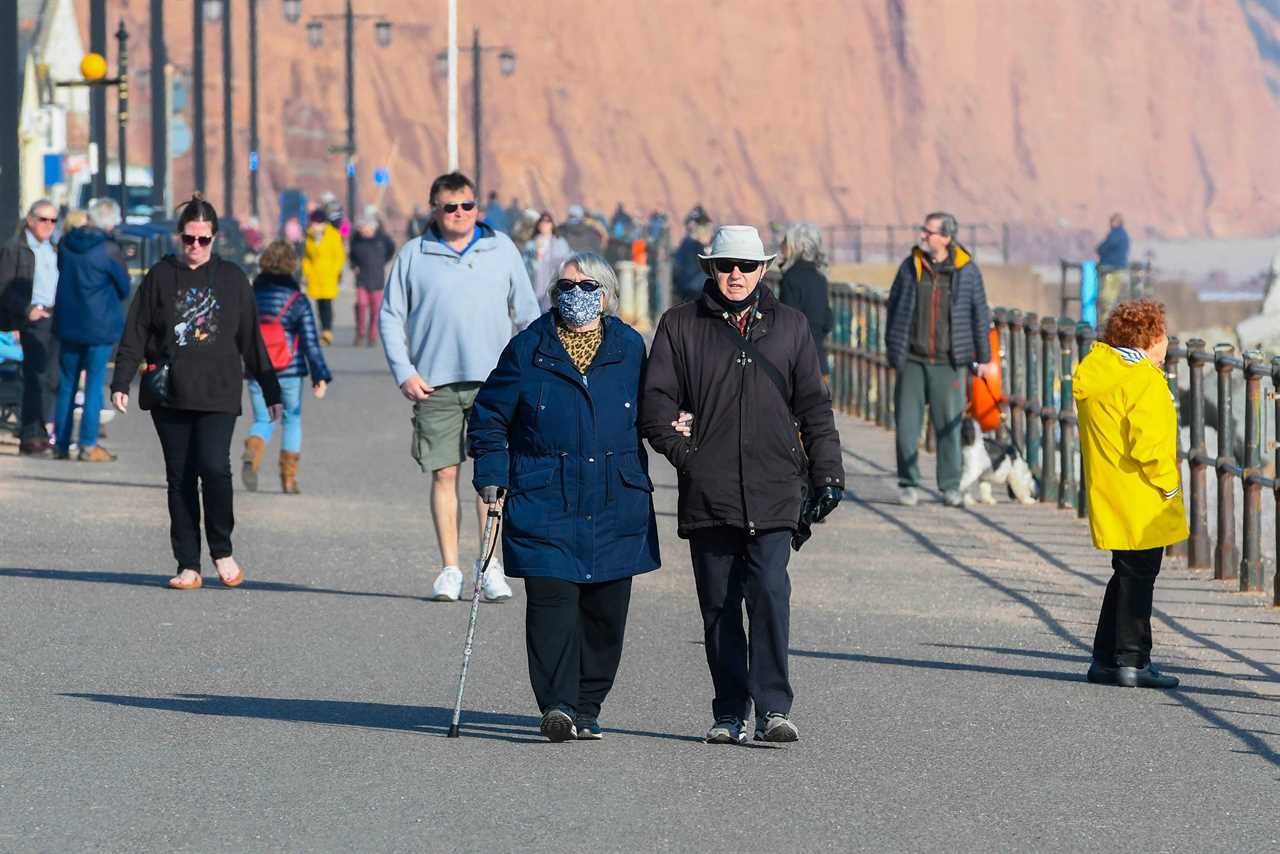
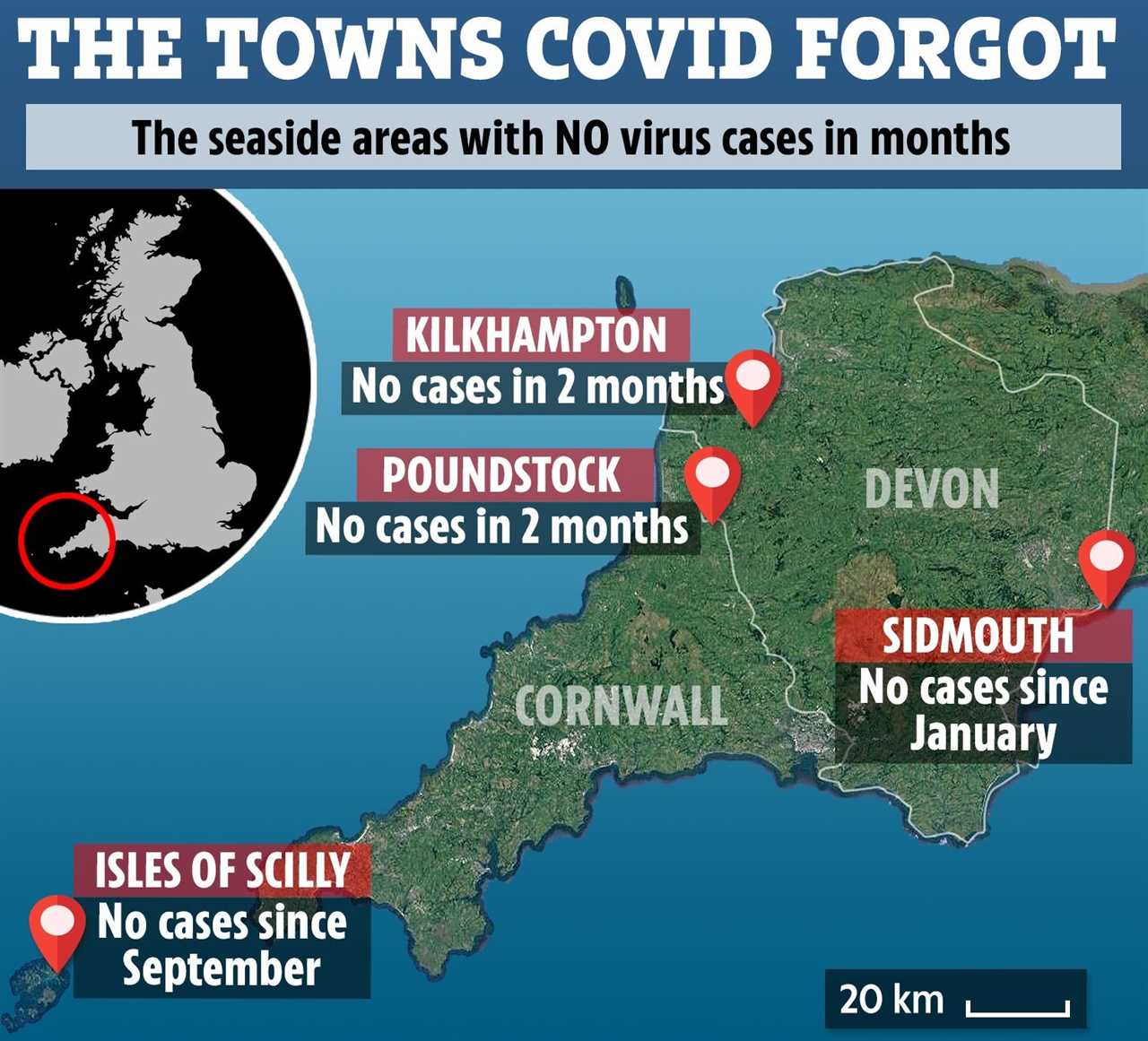
Elsewhere, rural Poundstock and Kilkhampton in north Cornwall last registered a case on January 6.
In Sidmouth, it’s believed residents’ success – even during January, when cases spiralled and the UK’s daily death rate hit an average of 900 in the first fortnight – is based on their caution.
The town also has one of the highest vaccination rates in the country.
It comes as:
- Boris Johnson has warned of a new Covid surge in Europe – and vowed not to speed up easing lockdown
- Covid jabs ‘will be rolled out for over-30s by April’
- Government officials have defended the £37bn Test and Trace system after an ex Treasury chief described it as “the most wasteful and inept public spending programme of all time”
- Scientists warn the super-infectious Kent mutation is up to twice as deadly as the original strain
- It was revealed A-level and GCSE exams will be easier in 2022 to help out students badly-hit by the pandemic
However, essential shops allowed to open during lockdown remain busy.
Thea Vincent, 89, a clergyman’s widow, told The Times: “Because we’re an older society we’d rather stay alive a little longer.”
Her friend Rosemary Bourne, 84, said: “We don’t know anyone who has had Covid.
“The community we live in, it’s just hugely vigilant and everyone is so careful.”
The Government identifies 6,791 ‘middle layer super output areas’ in England – meaning there are between 2,000 and 6,000 households there.
Sidmouth has the third highest proportion of over-70s in one of these areas, with 40 per cent, and the fifth highest vaccination rate at 58.5 per cent.
The last case reported in the town was on January 13.
Nigel Winchester, 56, who owns a fruit and veg shop, told the paper residents initially “panicked” during the first lockdown – and he had to “take the phone off the hook” to deal with mounting orders.
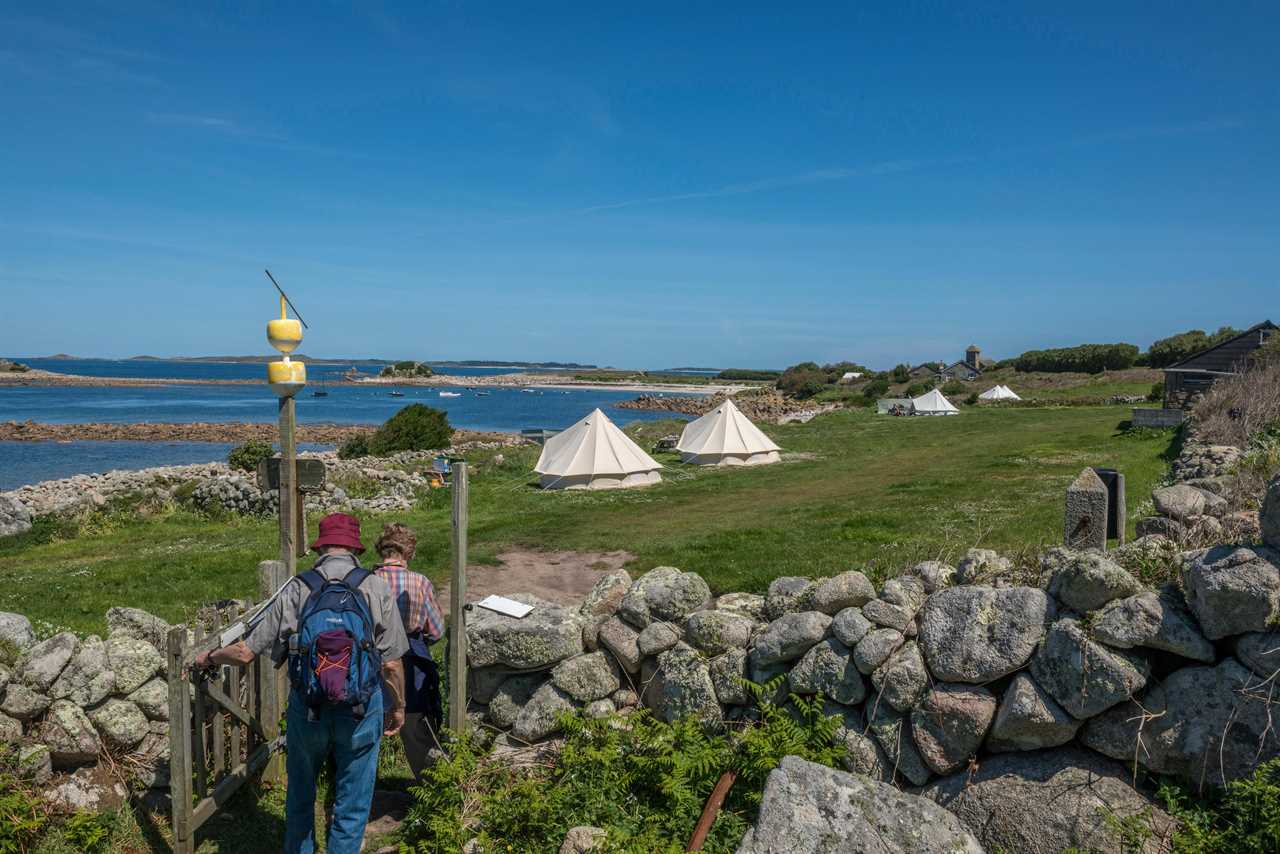
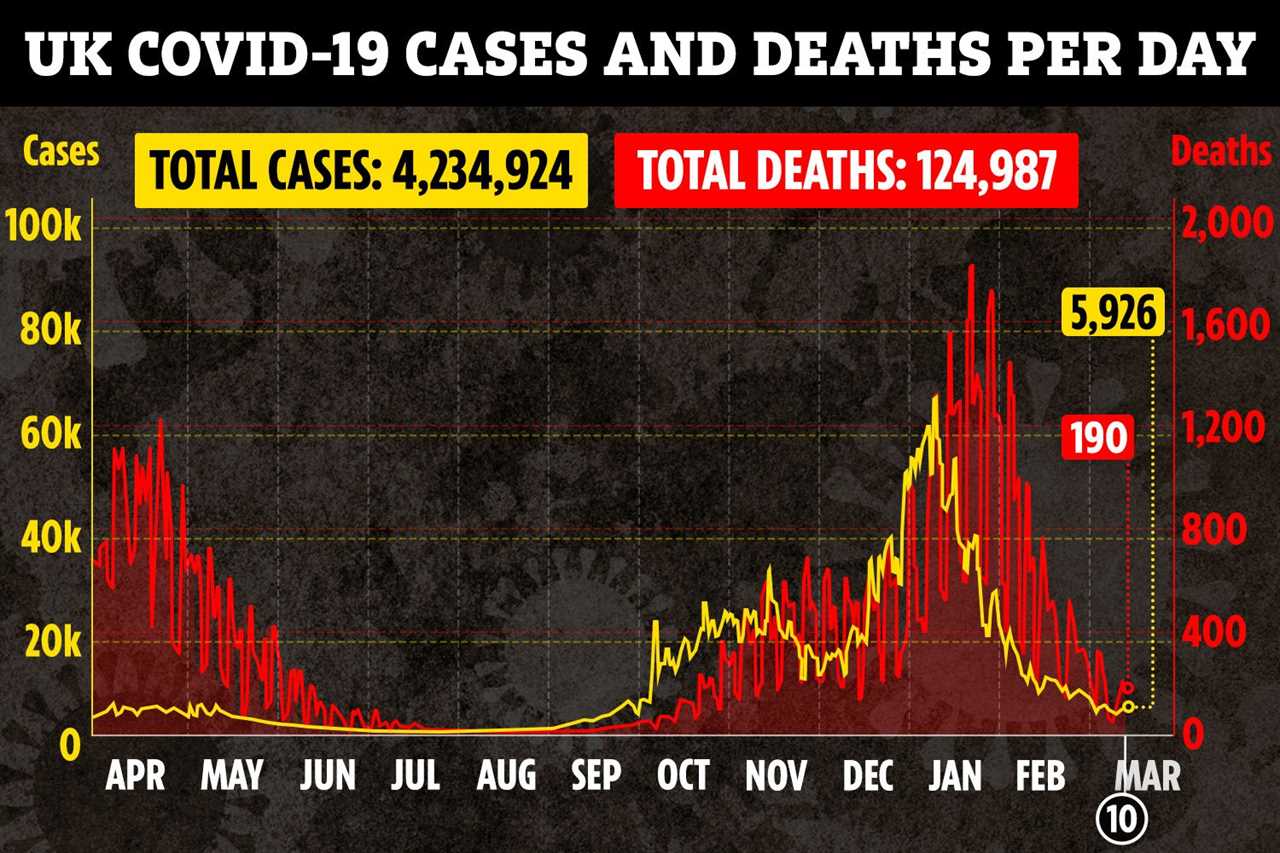
However, this time around, he said: “In this lockdown people weren’t panicking so much, and they realised it’s not so bad.”
Mike Fletcher 72, said he and wife Pam usually wear their masks, even when walking outside.
Across most of the country, Covid rates are plunging. However, in 18 areas of England – six per cent of the country – infections are rising.
Currently, Derbyshire Dales has the highest rate in England, with 116 new cases recorded in the seven days to March 6 – the equivalent of 160.4 cases per 100,000 people.
That’s a huge rise from 63.6 per 100,000 the previous week.
East Devon – a district just eight-and-a-half miles from Sidmouth – has also recorded a rise from 41.7 to 59.5.
Cases are rising in Canterbury in Kent, Craven in North Yorkshire and Uttlesford in Essex.
Yesterday, it was revealed that the UK’s death rate has dropped more than 80 per cent on this time last month.
Another 190 casualties were recorded yesterday – a huge drop on February 10, when 1,001 more deaths were reported.
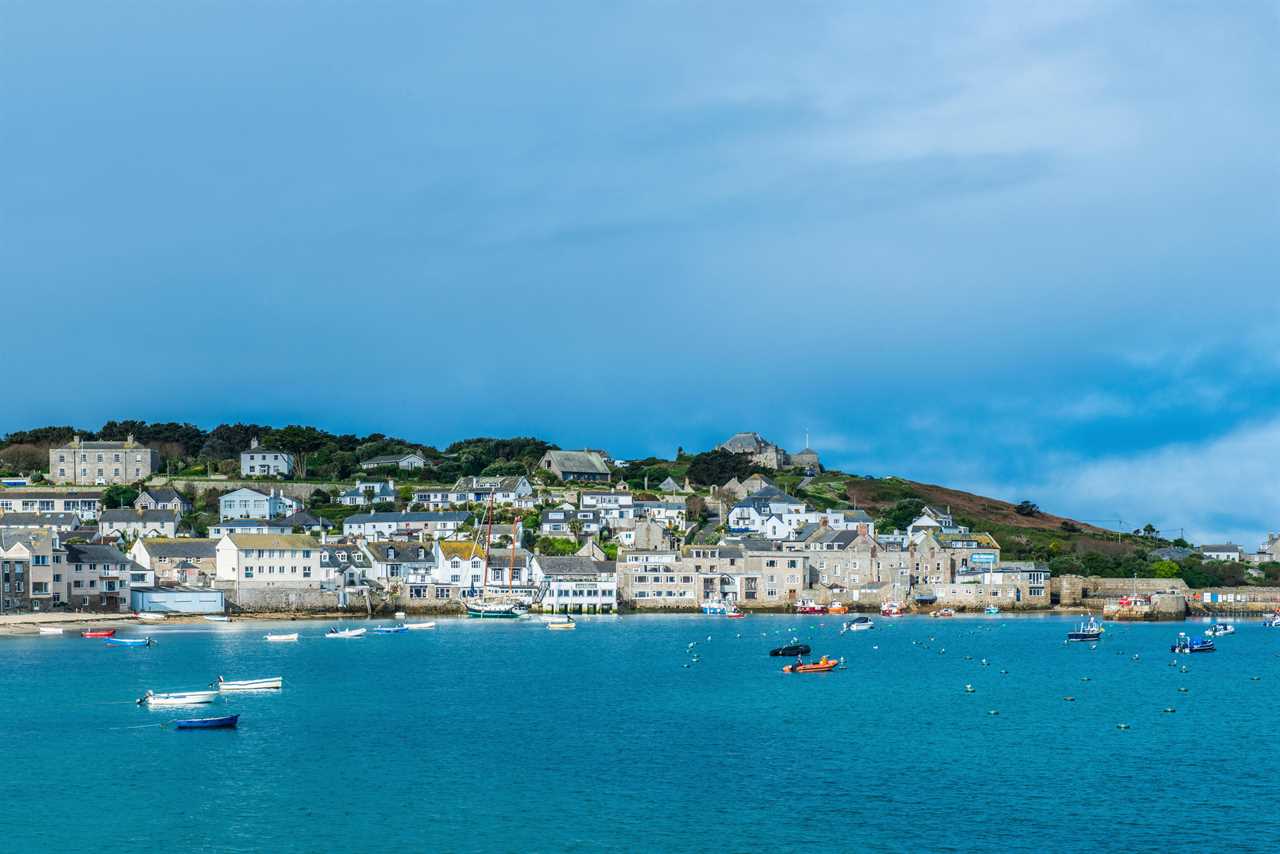
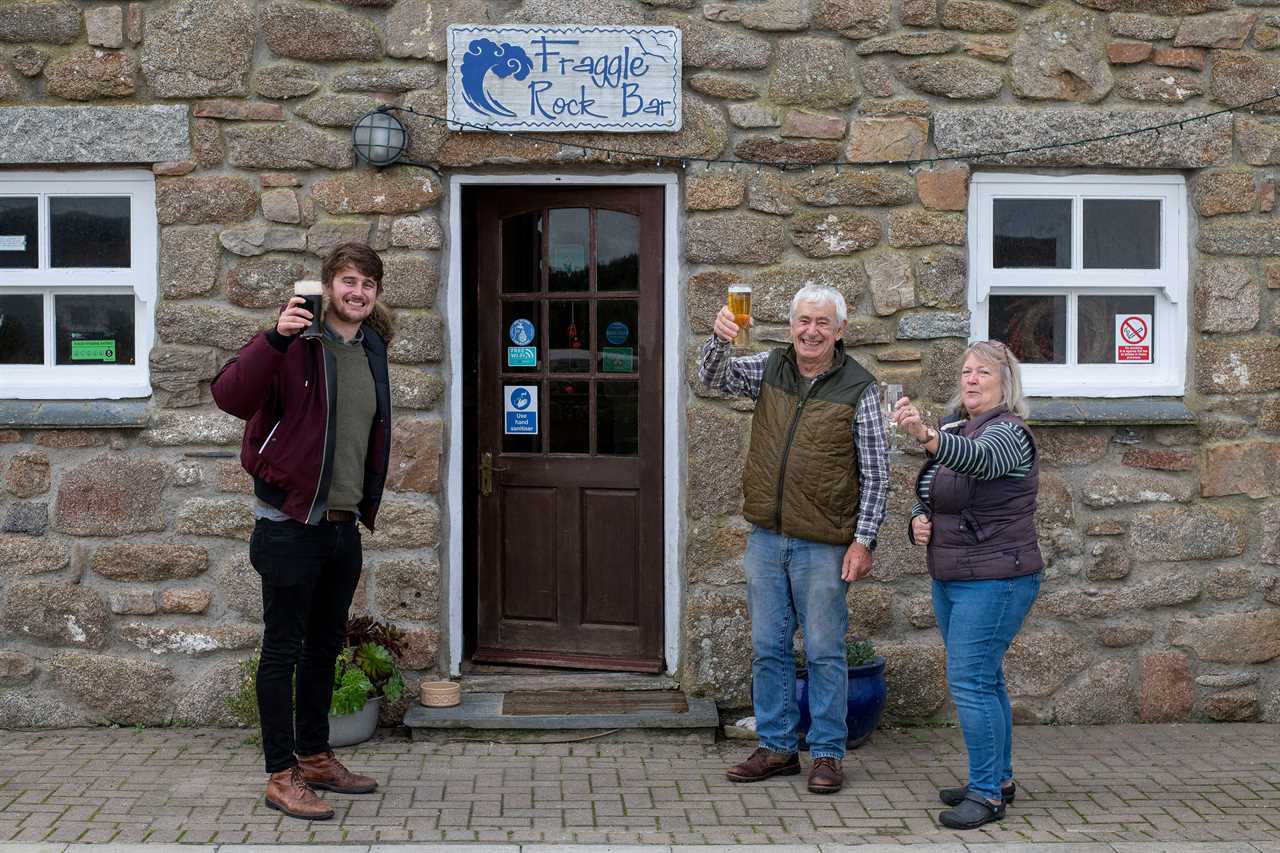
Meanwhile, a further 5,926 people tested positive overnight – a drop of 54 per cent on February 10, when 13,013 people were newly-diagnosed.
But Boris Johnson says he won’t unlock the country any quicker than planned.
And experts have warned that any easing of measures will result in further deaths, even with the success of the UK’s jabs roll-out.
Sage scientist Professor Andrew Hayward, of University College London (UCL), said reopening schools, pubs and shops are “very big steps” and “we don’t really understand what impact they will have on transmission”.
He said there are “very sizeable numbers of people” who are “vulnerable to ending up in hospital and dying”.







